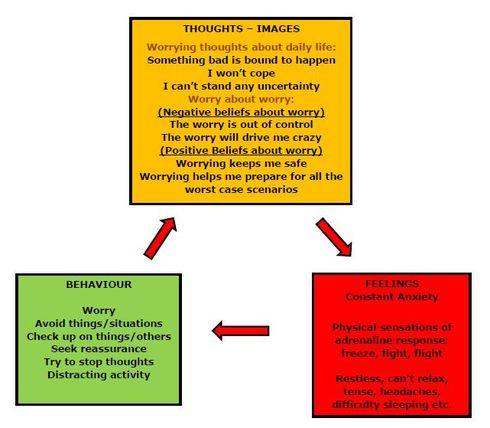Generalised Anxiety Disorder (GAD)
Generalised Anxiety Disorder (GAD) is a general, long-lasting worry and anxiety about everyday life, about anything and everything. People with GAD imagine the worst happening (and worry about all the possible worst case scenarios). They also believe they won't be able to cope when these possible imagined terrible things 'do' happen. However, as in all anxiety, we tend to over-estimate the danger, and under-estimate our ability to cope. There are specific aspects to the anxiety that occur with GAD.
Worries are classified into worries about:
Worries are classified into worries about:
- Current problems (things I can do something about - and can therefore learn to problem solve)
- Hypothetical situations (things I can't do anything about - and can therefore learn to react to differently)
- There's always a risk of something terrible happening
- I have to be 100% sure!
- I can't tolerate not knowing
- The worst could happen
- Uncertain events are almost always negative
- I might lose all control
- The worry will drive me crazy
- Worrying keeps me (and others) safe
- Worrying helps me prepare for all the possible worst case scenarios
- Worrying means I'm a caring person
- Worrying means I'll cope better when the worst happens





